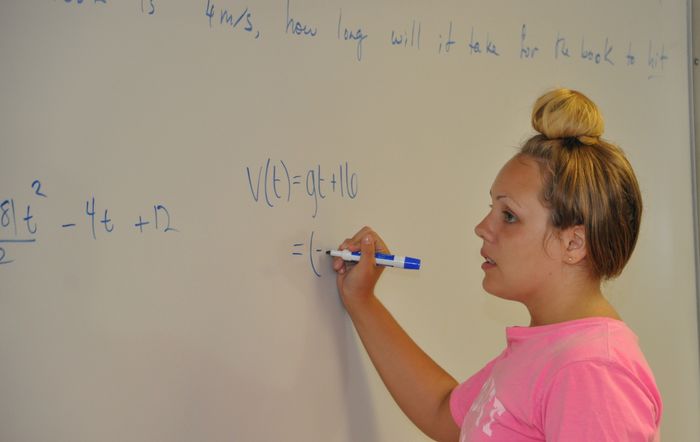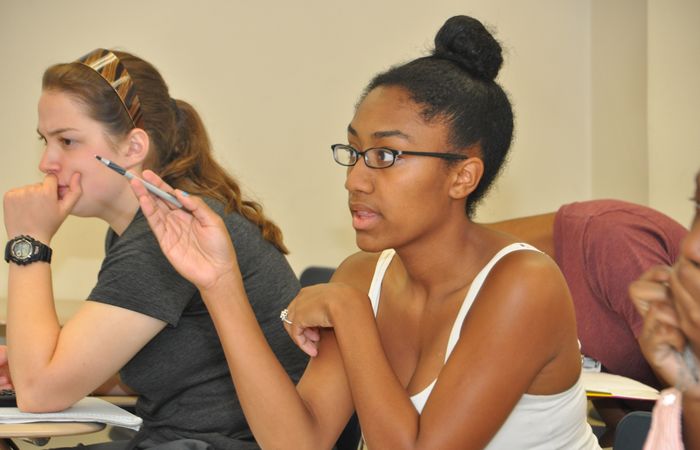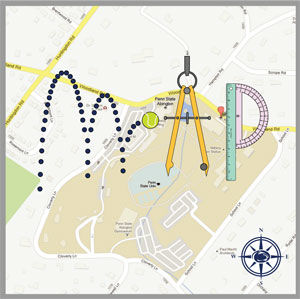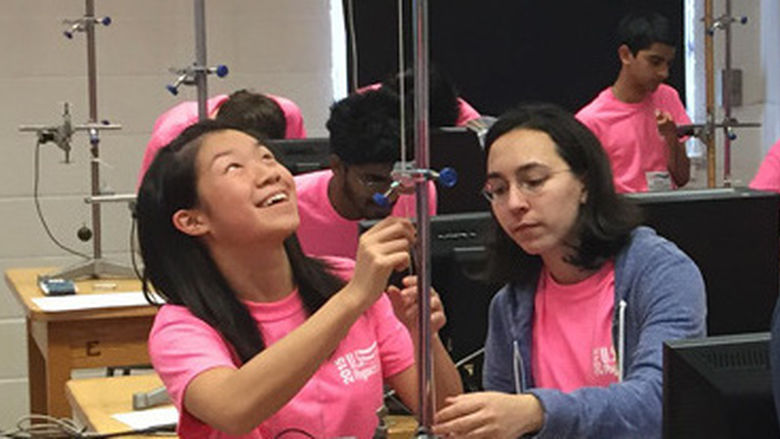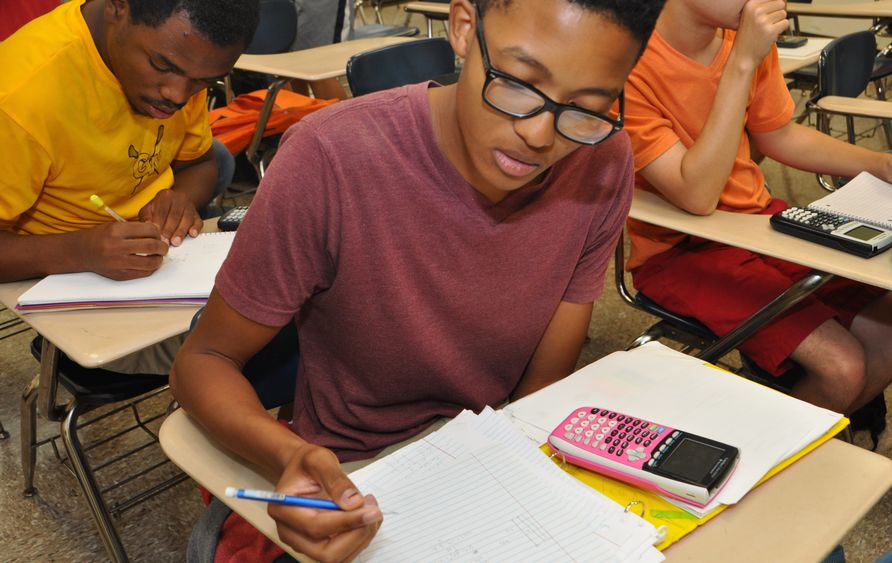
The MAP bonus: a new scientific calculator or MAPLE, a powerful mathematics software package students need as sophomores.
Their friends slept late, worked and relaxed this summer ... but 13 incoming Penn State Abington freshmen willingly spent an intense six weeks on campus. The upside of reducing downtime? These students in math-intensive majors boosted their skills by enrolling in an innovative program developed at Abington.
Students were invited to interview for a seat in Mathematics Academic Prep (MAP), which is designed to fill knowledge gaps and reinforce concepts critical to engineering and science careers. Success in early math and physics courses is crucial to progressing academically, according to Mikhail Kagan, assistant professor of physics.
"If Penn State accepts a student, we take responsibility to ensure they are fully prepared for their major," Kagan, MAP co-developer and coordinator, said. "It is our moral obligation to make sure they can succeed."
The content covers the equivalent of nine college credits, but the MAP 13 enrolled knowing it wouldn't count toward a degree. The MAP program included elements of physics and computer science. The students took multiple tests, exams, and participated in a project known as the Beauty Contest. Students drew faces composed of quadratic curves and parts of parabolas and then voted on a winner.
"It's a mathematical trick to show mathematical consistency," said Kagan, a recipient of the University's Atherton award for excellence in teaching. "It demonstrates how to make sense of something from a mathematical perspective."
One problem tormented the class on the final day, and an exasperated student asked, what now?
"Now, you learn," Stanislav Ritvin, MAP co-developer and lecturer in math, replied. "I don't solve problems in advance of class because I want you to see me working, pausing and thinking. The process is not straightforward."
Kagan and Ritvin paced the course and graded by University standards so students could sample the demands of college coursework before the fall.
"MAP showed me what college classes are like, especially a fast-paced summer course," said Sierra Mora, a freshman majoring in engineering. "It gave me an idea of what is expected of me in college."
Students also explored campus buildings and met peers and faculty, including one accomplished physics professor who now knows them by name.
"This made me way more comfortable for the fall," said Tony Skorczynski, an engineering major.
Although they didn't earn any credits, the students agreed that MAP was worthwhile.
Micaela Murphy, who plans a career in aerospace engineering, may have summed it up the best: "I learned 80,000 different ways to derive an equation."
The 2015 MAP program was partially funded by Penn State's Office of the Vice Provost for Educational Equity through a grant from its Equal Opportunity Planning Committee. The grant reduced the cost of MAP to a commitment fee of $125 per student. Upon completion of the program, the students received scientific calculators or the mathematical software package Maple.
The GPAs of MAP students will be tracked within their major and overall to help quantify the program's impact.
Learn more about engineering, information sciences and technology, and science majors at Abington, or visit http://abington.psu.edu/.
